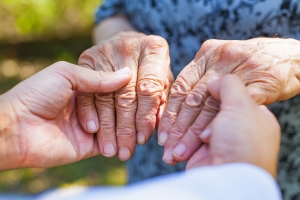Explore these real-life guardianship case studies that exemplify unique aspects of advocacy that guardians encounter on a daily basis to best protect vulnerable people and enhance the dignity and quality of life of those served by guardianship.
Caring Compassion
A guardianship/case management agency received a call from Lillian, regarding her sister Martha. Lillian lives in Colorado and was concerned because she hadn’t been able to reach Martha in more than a week.
week.
Up until then, Martha had been living independently in her own condominium. But a neighbor had noticed that her home was unlivable due to her frailty, incontinence and hording lifestyle. It also appeared she had not eaten for a few days. Concerned, he called 911 and Martha was admitted to the hospital. Subsequently, she was discharged to a small group home. A few days later, Martha called for a private medical transport to take her home, but instead they delivered her to a different hospital
Upon discharge from that hospital, she was sent to a rehabilitation center. They were unable to properly provide therapies because of Martha’s mental state and dementia, so they arranged for her discharge, despite the sister’s pleas to keep Martha as she believed it was unsafe for Martha to live alone. She was sent via a private medical transport back to her condominium, even though she had no keys to the home, no wallet and no fresh food in the home.
At this point, Lillian petitioned for an Agency to be guardian of Martha and her petition was granted by the court. The guardian cleaned out her condominium and sorted through her documents to find her key information and accumulated bills. The guardian was able to piece together her finances, as Martha had been unable to fully manage them properly for some time. The guardian found Martha a safe and clean assisted living community and sent Lillian a photo of Martha once she settled in. Lillian was appalled at how much weight Martha had lost since she last saw her, which triggered a complete health work-up, only to discover Martha had cancer. With the physician and the community’s wellness team, the guardian created a treatment plan for her, but Martha was so weak she never improved enough to begin the treatment, subsequently dying.
Lillian stayed in contact with Martha until she died. Lillian was very grateful that a guardian was able to step in and improve the end of Martha’s life.
Protecting and Supporting Those with Limited Resources
 Henry, age 65, has intellectual disabilities and was living in a run-down group home. A distant relative, Diane, visited Florida and stopped by to visit Henry. She was concerned that the group home was an unsafe environment. Diane began exploring options for Henry.
Henry, age 65, has intellectual disabilities and was living in a run-down group home. A distant relative, Diane, visited Florida and stopped by to visit Henry. She was concerned that the group home was an unsafe environment. Diane began exploring options for Henry.
Diane determined that Henry might not be able to understand contracts and public benefits, could not manage a checkbook, but he understood his medical issues and had appropriate interactions with his health care providers.
Diane contacted an attorney to see how best to help Henry, and they decided to propose a voluntary guardianship.
Henry agreed to a voluntary guardianship and looked at some new potential places to live with Diane. She left town after a guardianship was appointed. Henry and his new guardian created a budget together, and chose a new place to live. The guardian worked with APD and did further Medicaid planning, placing some funds in a special needs pooled trust for Henry.
Henry now has a safe, clean place to live with caring providers in an ALF. There are opportunities for socialization and better meals. His quality of life has vastly improved
